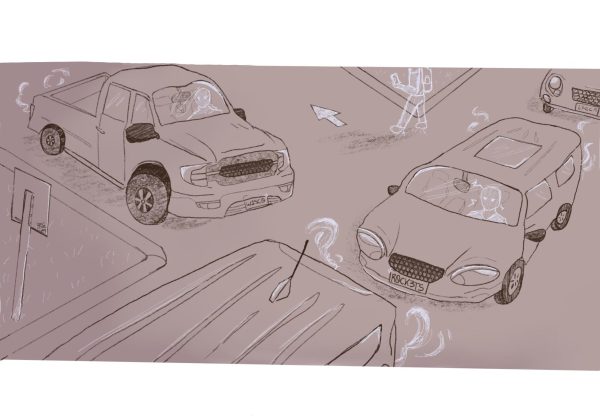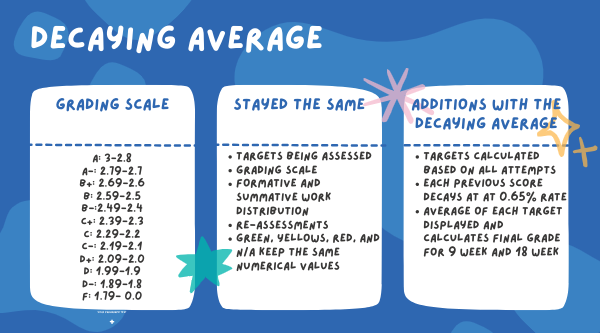Editorial: Revisiting the NHS Release Policy
The decision at NHS to implement harsher release policies has thus far been met with major scrutiny from the student body. Many of us do not understand the need to implement such policies, or in fact why it was even brought up.
The policies add an additional mark in the school’s attempt to rebalance the scale between students’ rights and safety. They include a provision that requires students to stay near the main office until the next passing time if they arrive late to door 4. Students have taken to calling the provision “release jail.” And to be honest, the name fits. While “release jail” aims at keeping students safe and halls clean, it fails to take on either problem. In fact, this issue can be solved in a much more accommodating way, without placing an undue burden on staff or students.
It is vastly apparent that the goal of “release jail” is to curb the possibility of an attack taking place at NHS. To this point, N.J.S.D. claims that “the implementation of this plan will vastly decrease the likelihood of a major tragedy occurring at Neenah High School.” Most would say that the idea of a mass shooting occurring at NHS seems far-fetched, but it is undeniably a real threat. According to the BBC, there were 372 mass shootings in the U.S. throughout 2015. Of these shootings, 64 were classified as school shootings. In 2014, there were 45. According to MTV News, there were 32 in 2013. This upward trend in the number of shootings cannot be ignored. It proves that additional security measures must at least be looked into, and that the school did have the right idea.
Unfortunately, “release jail” simply is not the solution. We are already required to scan our student ID upon entry into the building, and a receptionist already cross-checks the scan with the photo that appears on their computer. This means that it was already next to impossible for a non-student to enter through door 4 before the existence of “release jail” unless they had a visitor’s pass. Furthermore, as long as a student can enter the building, they can do so with a gun. Nothing is stopping them; as there are no police pat-downs, scanners, or metal detectors. If one wishes, they could simply walk in the front door, so to speak. This “release jail” simply acts as a delay, rather than providing a real solution. In addition, it makes our lives as students far more complicated. Students often use their release time to get help from teachers or do homework. Some even use the time to take, retake, or correct tests, which is obviously vital to a student’s grade and thus their future. The policy confines those who use this time wisely to the main office area, even if they were a mere one minute late, while failing to punish those who truly do endanger the lives of others at NHS.
To fix this, the district must first recognize its mistake, and reverse its stance on “release jail.” But additional steps beyond last year’s rules must be taken to ensure the safety of the student body. While some may suggest metal detectors, or a stricter dress code, the optimal solution should not involve restricting the rights of students. A better solution would be to expand the school’s peer mentoring programs to accommodate high school students who have exhibited signs of depression or suicide, which, according to the National Crime Prevention Council, is the leading motivator of school shootings, with over 50 percent of shooters showing some suicidal tendencies. Some might argue that it takes a specially trained counselor to help these students, but do not underestimate the impact a peer can have on a struggling student’s life. In fact, Advocates for Youth’s assessment of 28 different peer counseling programs revealed that peer-to-peer work can have an impact on far more areas than just mental health, but also sexual health, exercise and diet, and substance abuse. They also state that someone who needs help is far more likely to engage in a meaningful dialogue with a fellow student rather than a counselor, because of the bond they inherently share.
While it is imperative that NHS remains safe, the needs of the student body must also be considered more thoroughly. The school must eliminate illogical policies that serve to enhance peace of mind. “Release jail” must be consigned to the ash heap of history, and in its place, we must look inward, to a policy designed to fix the problem by tearing down social and academic barriers, rather than creating new ones. By implementing an expanded peer counseling program, we can help other student deal with problems including, but not limited to depression, suicide, substance abuse, and sexual health, greatly reducing the risk of a violent attack by a student at NHS. With as little as 10 volunteers, we could make a difference in the lives of hundreds of high school students, and make our school safer along the way.











